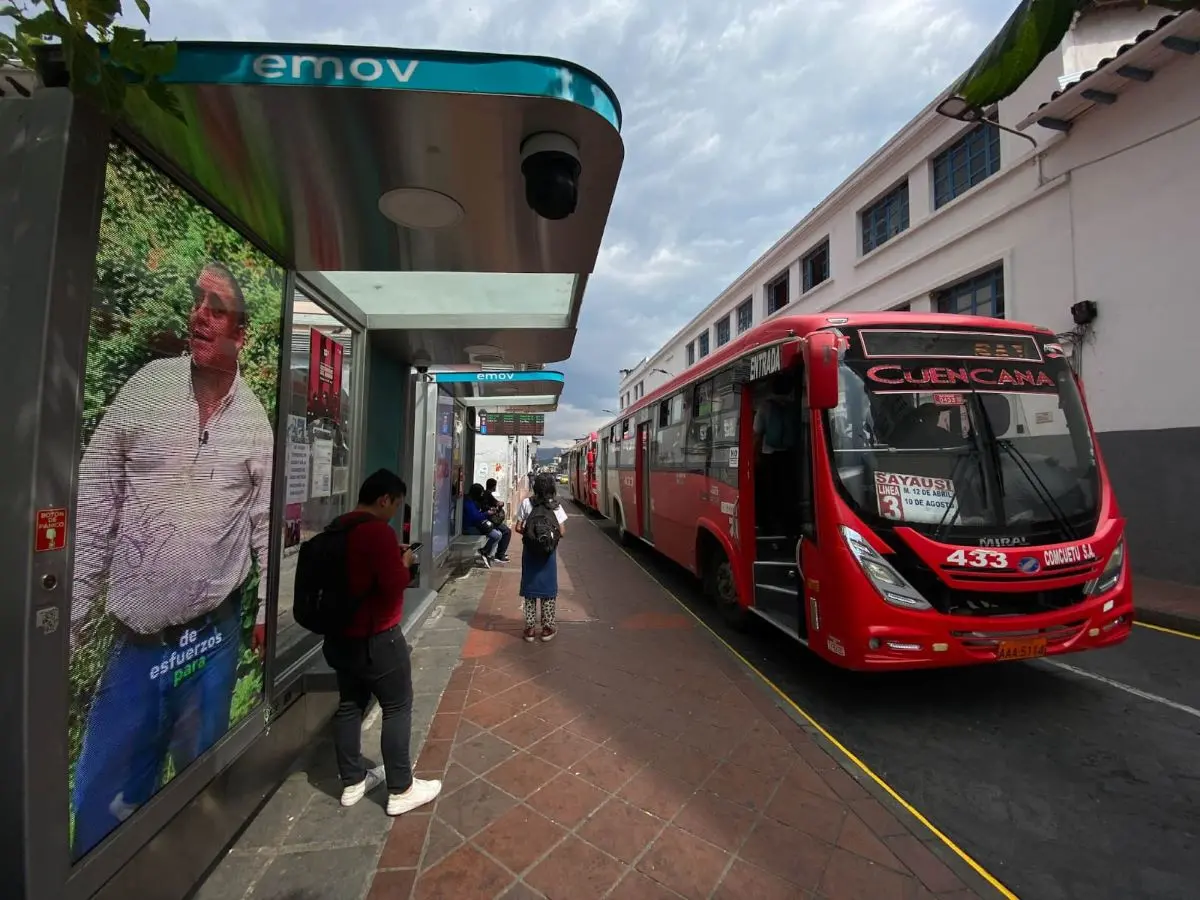Write a post
How the 'Safe Return' plan assists migrants and other travelers arriving in Ecuador
With the holiday season approaching, many Ecuadorian migrants return home to celebrate Christmas and New Year's with their families. To ensure their and other passengers' safety, the National Police has activated the 'Safe Return' plan, a free service offering secure transit for travelers from airports to their final destinations.
Why the plan is needed
December sees a surge in returning migrants. In December 2023 alone, 138,867 Ecuadorians entered the country via international airports, according to the National Institute of Statistics and Census (INEC). Many travelers bring luggage filled with gifts for loved ones, making them targets for theft. For instance, on the Guayaquil-Cuenca route, incidents of luggage theft were reported, with criminals either unloading bags from vehicles or stopping cars to commit robberies.
How the 'Safe Return' plan works
The program, running for 12 years, provides police escorts for travelers from the airport to their destination. In 2023, over 1,500 people used this service nationwide.
How to request the service
Travelers can access the 'Safe Return' plan in two ways:
Call ECU 911: Request assistance upon arrival.
Airport Assistance Desks: Request support at designated help desks in airports. The service is available until January 6.
Once the request is made, a police unit, consisting of a patrol car and a motorcycle, will accompany the traveler to their destination.
Additionally, Guayaquil's José Joaquín de Olmedo International Airport has enhanced security measures, including 24-hour surveillance cameras, armed guards, and additional staff.
Source: Primicias.
Diesel shortage due to pipeline damage
Local fuel distributors in Cuenca are facing challenges in bringing diesel from the coast due to pipeline damage. Stations were closed on November 26th as they had no diesel to sell. The problem started the previous week with a progressive reduction in diesel supply, followed by an announcement from Petroecuador that distribution from the Challuabamba terminal was suspended due to damage from four "pinchazos" (punctures) on the pipeline between Pascuales and La Troncal, causing contamination of the fuel.
Local distributors are asked to bring diesel using tanker trucks from the terminals in La Troncal (Cañar) and Pascuales (Guayas). However, high transportation costs are affecting the economic feasibility of this solution, as tanker operators face losses due to the high freight costs and low profit margins. Additionally, there is a shortage of suitable tanker trucks for the journey, as most are too small or too old.
Some stations, like the Sindicato de Choferes, are able to send their own tankers, but the fuel runs out quickly due to high demand. The Azuay Fuel Distributors Association has proposed that the government cover freight costs until the situation normalizes.
The governor of Azuay, Santiago Malo, has stated that the diesel shortage is not due to lack of supply but technical distribution issues, and the government is working on finding solutions. However, many stations in Cuenca remain without diesel, with some waiting for the situation to be resolved.
Cuenca launches six new smart bus stops
Starting November 23, 2024, six new smart bus stops are now operational in Cuenca, adding to the 11 previously installed stops that underwent an upgrade. This initiative, led by the Empresa de Movilidad (EMOV EP) of the Municipality, aims to improve the city's public transportation infrastructure.
New Smart Bus Stops Locations
Avenida de las Américas and Calle Trinidad y Tobago (roundabout near Feria Libre)
Vega Muñoz and Juan Montalvo streets
Escuela 3 de Noviembre
Avenida Felipe II and Autopista (Mall del Río)
Avenida 24 de Mayo and Autopista (near Garaicoa School)
Avenida de las Américas and Autopista (near Hospital del Río)
Features of the Smart Bus Stops
These stops are designed for functionality, safety, and technology interaction. Key features include:
Two LED screens
Panic button
Surveillance camera connected to the Citizen Security Council
The purpose is to enhance user safety and provide real-time communication with authorities through the panic button.
Statistics and Installation Plans
Diego Idrovo, president of the Cuenca Transport Chamber, emphasized the strategic placement of these stops, with areas of high user traffic such as the Centenario stop, which saw 94,000 passengers in March, and the University of Cuenca stop, which has around 50,000 users.
Additional smart bus stops are planned for installation:
Four more stops by December 12, 2024, at strategic locations such as Parque de la Madre and Hospital Regional.
Ten more smart bus stops are expected to be installed in 2025 after a feasibility study determines optimal locations.
The project is part of Cuenca's vision to become a "Smart City," where public transport is more efficient, accessible, and safe for all citizens.
Mobile App Integration
A mobile app is also available for iOS and Android devices, allowing passengers to track bus routes, schedules, and interact with the public transport service.
This initiative will continue to improve the city's public transportation experience and overall infrastructure.

Cuenca's airport closure is suspended
The 1.9 km long runway of Cuenca's airport was scheduled to be closed for maintenance and improvements in September and October this year. Due to contracting problems, this closure will be postponed until at least 2025. The municipality will ask contractors to make new bids.
Runway extension
Corpac, the municipal company that manages the airport, is analyzing an extension of the runway towards the northern head, which overlooks the Milchichig area. Studies are needed to carry out this expansion.